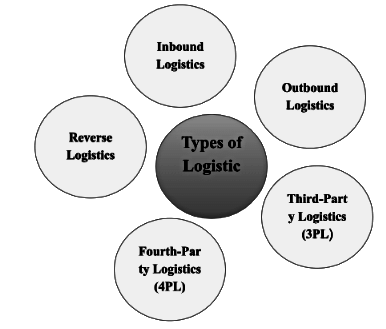UGC NET Exam > UGC NET Notes > Crash Course for UGC NET Commerce > Logistics Management: Importance, Objective & Features
Logistics Management: Importance, Objective & Features | Crash Course for UGC NET Commerce PDF Download
| Table of contents |

|
| Logistics Management Overview |

|
| What is Logistics Management? |

|
| Importance of Logistics Management |

|
| Objectives of Logistics Management |

|
In today's interconnected business environment, logistics management is crucial for ensuring the efficient movement of goods and services from their origin to their destination. This article explores the definition, features, importance, objectives, and types of logistics management.
Logistics Management Overview

Question for Logistics Management: Importance, Objective & FeaturesTry yourself: What is the primary focus of logistics management?View Solution
What is Logistics Management?
According to the Council of Logistics Management, logistics involves planning, implementing, and controlling the movement and storage of goods, services, and information from the point of origin to the point of consumption. This definition highlights logistics as a critical part of the entire supply chain process, not just transportation.
Logistics management involves creating systems that regulate the flow of materials and products to meet business goals. It coordinates the movement of raw materials, work-in-progress, and finished inventory across the organization.
Features of Logistics Management
Key features include:
- Efficient movement of goods, including raw materials and finished products.
- Meeting customer expectations in terms of product quality and information.
- Real-time updates on product demand and availability.
- Timely delivery of products in required quantities while minimizing excess inventory.
- Balancing high levels of customer service with cost efficiency.
- Coordinating diverse management functions to optimize resource use.
- Managing the storage, quantity, and transportation of goods.
Importance of Logistics Management
Logistics has become critical in modern business for several reasons:
- Rising transportation costs: The increase in fuel prices makes it vital to streamline logistics to cut expenses.
- Production efficiency: As production maximizes, businesses need effective logistics to stay competitive.
- Technological advancements: Technology has transformed logistics, enabling better tracking and management of goods.
- Growth of retail chains: The rise of large retailers has disrupted traditional distribution models, requiring businesses to adapt.
- Globalization: International expansion demands efficient logistics to manage complex global supply chains.
Objectives of Logistics Management
The goals of logistics management include:
- Rapid response: Quickly fulfilling customer service demands.
- Minimum variance: Reducing disruptions in the system, such as delays or damaged goods.
- Minimum inventory: Keeping inventory low while maintaining customer satisfaction and minimizing costs.
- Quality improvement: Continuous enhancement of logistics operations through Total Quality Management (TQM).
- Life-cycle support: Ensuring product performance over time and managing reverse logistics when necessary.
Types of Logistics
Logistics management involves several types, including:

- Inbound Logistics: Managing the transport, storage, and procurement of goods entering a business, including raw materials and inventory management.
- Outbound Logistics: Managing the flow of finished products to customers via distribution networks, including wholesalers and retailers.
- Third-Party Logistics (3PL): Outsourcing logistics functions to specialized providers, allowing companies to focus on production.
- Fourth-Party Logistics (4PL): Supply chain integrators that manage and coordinate all logistics services and providers.
- Reverse Logistics: Handling the reuse and recycling of products and materials, managing their return to capture value or ensure proper disposal.
Conclusion
Logistics management is a complex but vital part of modern business operations. It provides a competitive edge and ensures the smooth flow of goods in today's dynamic global market.
The document Logistics Management: Importance, Objective & Features | Crash Course for UGC NET Commerce is a part of the UGC NET Course Crash Course for UGC NET Commerce.
All you need of UGC NET at this link: UGC NET
|
157 videos|236 docs|166 tests
|
FAQs on Logistics Management: Importance, Objective & Features - Crash Course for UGC NET Commerce
| 1. What is the importance of logistics management in business? |  |
Ans.Logistics management is crucial for businesses as it ensures the efficient flow of goods and services from the point of origin to the consumer. It helps in reducing costs, improving customer satisfaction, and enhancing the overall supply chain efficiency.
| 2. What are the primary objectives of logistics management? |  |
Ans.The primary objectives of logistics management include optimizing transportation and warehousing processes, ensuring timely delivery of products, minimizing costs, and improving service quality to meet customer expectations.
| 3. What are the key features of effective logistics management? |  |
Ans.Key features of effective logistics management include strategic planning, real-time tracking of shipments, inventory management, coordination among suppliers and distributors, and the use of technology to enhance operational efficiency.
| 4. How does logistics management contribute to supply chain management? |  |
Ans.Logistics management is a vital component of supply chain management as it focuses on the movement and storage of goods, ensuring that products are delivered efficiently and effectively to meet consumer demand while minimizing costs.
| 5. What role does technology play in logistics management? |  |
Ans.Technology plays a significant role in logistics management by enabling automation of processes, providing real-time data analysis, improving communication within the supply chain, and enhancing tracking and inventory management systems for better decision-making.
Related Searches




















